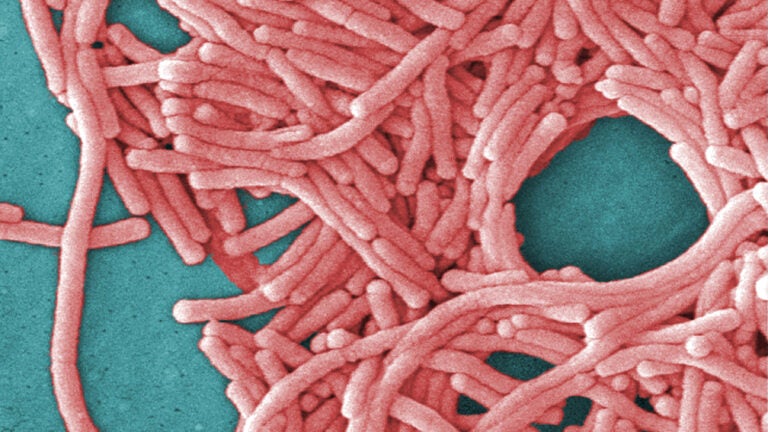Legionnaires’ Disease in Lincoln, NH

Lincoln, New Hampshire, has experienced several outbreaks of Legionnaires’ disease, a serious lung infection caused by the bacterium Legionella. These outbreaks have raised concerns about the potential sources of the bacteria in the area and the effectiveness of public health measures to prevent future occurrences.
History of Legionnaires’ Disease Outbreaks
Lincoln, NH has experienced several outbreaks of Legionnaires’ disease, with the most recent occurring in 2023. The first known outbreak in Lincoln was in 2009, with several cases reported in the town. Subsequent outbreaks were documented in 2013 and 2017, highlighting a recurring pattern of Legionnaires’ disease cases in the area.
Strains of Legionella Bacteria
The specific strains of Legionella bacteria identified in Lincoln, NH have varied over time. In 2009, the outbreak was linked to Legionella pneumophila serogroup 1, a common strain associated with Legionnaires’ disease. Subsequent outbreaks involved different serogroups, including Legionella pneumophila serogroup 6 and Legionella longbeachae. The identification of multiple strains suggests that the sources of Legionella bacteria in Lincoln are diverse and may be evolving.
Potential Sources of Legionella Bacteria
- Water Systems: Water systems, including municipal water supplies, private wells, and cooling towers, are known to harbor Legionella bacteria. In Lincoln, NH, the potential for contaminated water systems has been a focus of investigations. Water contamination can occur due to factors such as inadequate disinfection, stagnant water, and the presence of biofilms, which provide a favorable environment for Legionella to grow.
- Environmental Factors: Legionella bacteria can thrive in warm, stagnant water environments, such as those found in hot tubs, showers, fountains, and cooling towers. In Lincoln, NH, the presence of natural water sources, such as lakes and rivers, also presents a potential source of Legionella bacteria. These sources can be contaminated through various factors, including runoff from agricultural areas, wastewater discharges, and wildlife.
- Specific Locations: Certain locations in Lincoln, NH have been identified as potential sources of Legionnaires’ disease outbreaks. These locations include hotels, motels, and other lodging facilities, as well as public buildings and businesses. The investigation of specific locations involves identifying potential sources of contaminated water, such as cooling towers, hot tubs, and plumbing systems.
Public Health Response and Prevention: Lincoln Nh Legionnaires Disease

The local health authorities in Lincoln, NH, have taken swift and comprehensive measures to address the Legionnaires’ disease outbreak. Their primary focus is on protecting public health, identifying the source of the outbreak, and preventing further cases.
Public Health Recommendations and Guidelines
The local health department has issued a series of recommendations and guidelines to help residents and visitors in Lincoln, NH, prevent Legionnaires’ disease. These measures aim to reduce exposure to the bacteria that cause the illness, particularly in water systems.
- Maintain Water System Hygiene: Regularly clean and disinfect water systems, including showers, faucets, and cooling towers, to prevent the growth of Legionella bacteria.
- Flush Water Systems: Run water for several minutes in all taps and showerheads, especially after periods of inactivity, to flush out stagnant water where bacteria can thrive.
- Keep Water Temperatures Optimal: Maintain hot water temperatures above 120°F and cold water temperatures below 90°F to discourage Legionella growth.
- Inspect and Maintain Cooling Towers: Regularly inspect and maintain cooling towers in commercial and industrial settings, ensuring they are properly disinfected and functioning correctly.
- Avoid Stagnant Water: Drain and clean water-filled objects such as humidifiers, hot tubs, and decorative fountains regularly to prevent the growth of bacteria.
- Practice Good Hygiene: Wash hands frequently with soap and water, especially after handling water sources or touching potentially contaminated surfaces.
- Seek Medical Attention: If you experience symptoms such as fever, cough, shortness of breath, muscle aches, or headaches, especially after exposure to water sources, seek immediate medical attention. Early diagnosis and treatment are crucial for successful recovery from Legionnaires’ disease.
Availability and Accessibility of Legionnaires’ Disease Testing and Treatment
Lincoln, NH, has access to a range of testing and treatment options for Legionnaires’ disease.
- Diagnostic Testing: Local hospitals and clinics are equipped to perform diagnostic tests for Legionnaires’ disease, including urine and blood tests.
- Treatment Options: Antibiotics are the primary treatment for Legionnaires’ disease, and they are readily available at healthcare facilities in Lincoln, NH.
- Access to Healthcare: The community has access to several healthcare providers, including primary care physicians, specialists, and emergency services, ensuring timely and effective treatment for Legionnaires’ disease.
Impact and Awareness

The Legionnaires’ disease outbreak in Lincoln, NH, had a significant impact on the community, affecting health, economic, and social aspects. It also highlighted the importance of public awareness and preparedness for such outbreaks.
Health Impact
The outbreak resulted in several confirmed cases of Legionnaires’ disease, leading to hospitalizations and, unfortunately, some deaths. This significantly impacted the health of the affected individuals and their families. The outbreak also raised concerns about the overall health of the community and the potential for further spread of the disease.
Economic Impact
The outbreak had a negative impact on the local economy. Businesses, particularly those in the tourism sector, experienced a decline in revenue due to decreased visitor numbers and negative media attention. The cost of treating Legionnaires’ disease patients also placed a burden on the local healthcare system.
Social Impact
The outbreak created a sense of fear and uncertainty within the community. Residents were concerned about their own health and the health of their loved ones. The outbreak also led to increased scrutiny of public health practices and infrastructure.
Public Awareness Campaigns and Initiatives, Lincoln nh legionnaires disease
Following the outbreak, public health officials and local organizations implemented several initiatives to raise awareness about Legionnaires’ disease and its prevention. These initiatives included:
- Public service announcements on local radio and television stations
- Distribution of educational materials about Legionnaires’ disease risk factors and prevention measures
- Community meetings and presentations to inform residents about the outbreak and the public health response
- Collaboration with local businesses to ensure proper water management practices
These initiatives aimed to educate the community about the disease, promote awareness of risk factors, and encourage preventative measures.
Ongoing Research and Initiatives
The outbreak prompted further research and initiatives to understand and mitigate Legionnaires’ disease in Lincoln, NH. These efforts include:
- Ongoing monitoring of water systems to identify potential sources of Legionella bacteria
- Collaboration with researchers to study the prevalence of Legionella bacteria in the area
- Development of targeted interventions to reduce the risk of Legionnaires’ disease outbreaks
These ongoing efforts are crucial to protect the health of the community and prevent future outbreaks.
Lincoln nh legionnaires disease – The recent outbreak of Legionnaires’ disease in Lincoln, New Hampshire, serves as a poignant reminder of the fragility of our well-being. As we navigate this challenging situation, let us find solace in the knowledge that even in the face of adversity, the spirit of resilience and compassion can prevail.
For those seeking further information about this situation, resources are available at lincoln nh legionnaires disease. May we all find strength and hope in these trying times, and may we extend our support to those affected by this outbreak.
The outbreak of Legionnaires’ disease in Lincoln, New Hampshire, serves as a poignant reminder of the fragility of our well-being. Just as a single, invisible microbe can wreak havoc on a community, so too can the seeds of conflict sown between nations.
The ongoing tensions between Iran and Israel, a history fraught with mistrust and violence, iran attack israel israeli are a stark example of how easily conflict can escalate, leaving a trail of devastation in its wake. As we navigate these challenging times, let us find strength in compassion and strive to build bridges of understanding, not walls of division.
Perhaps then, we can find the resilience to overcome the unseen threats, both physical and emotional, that face us all.
